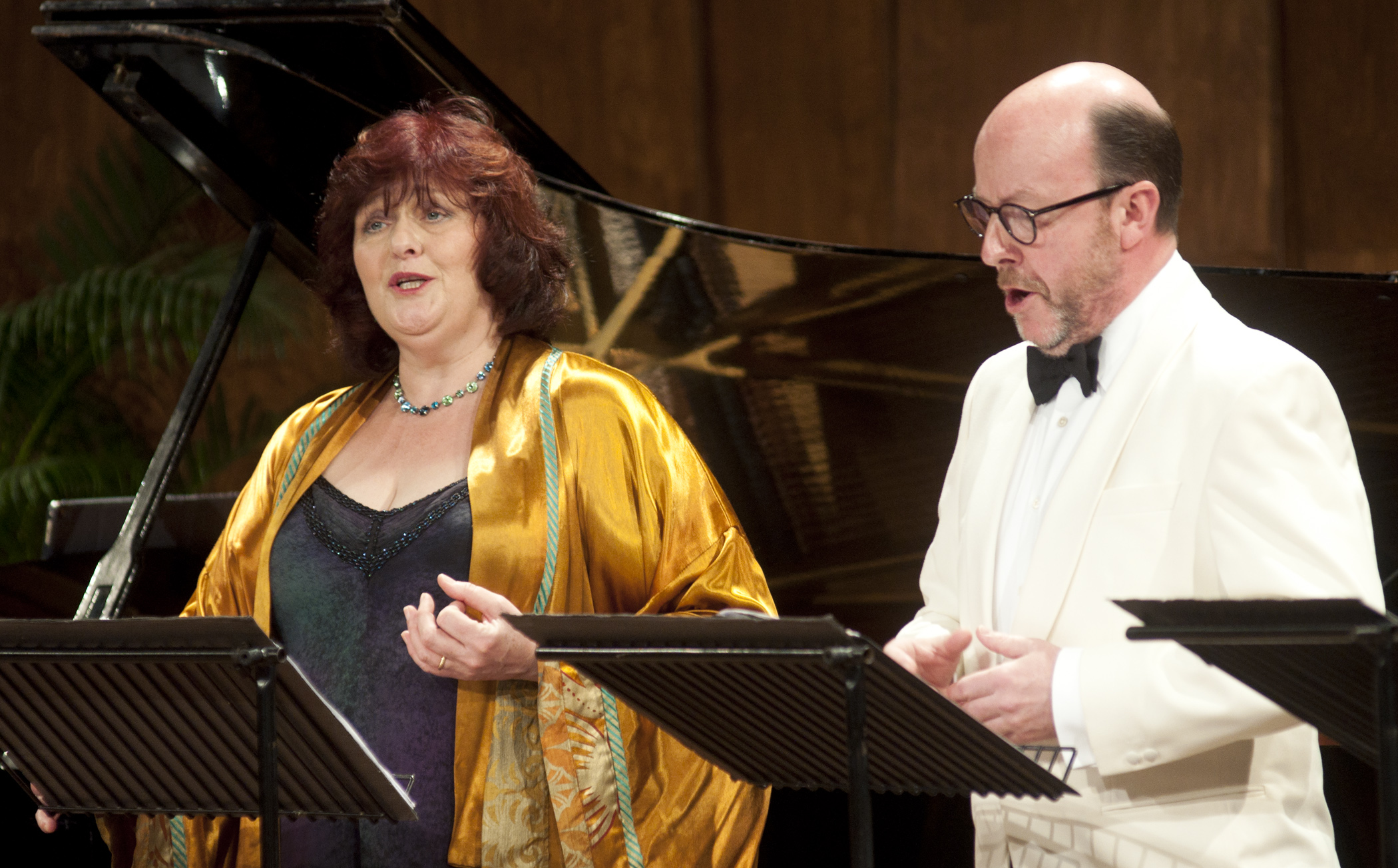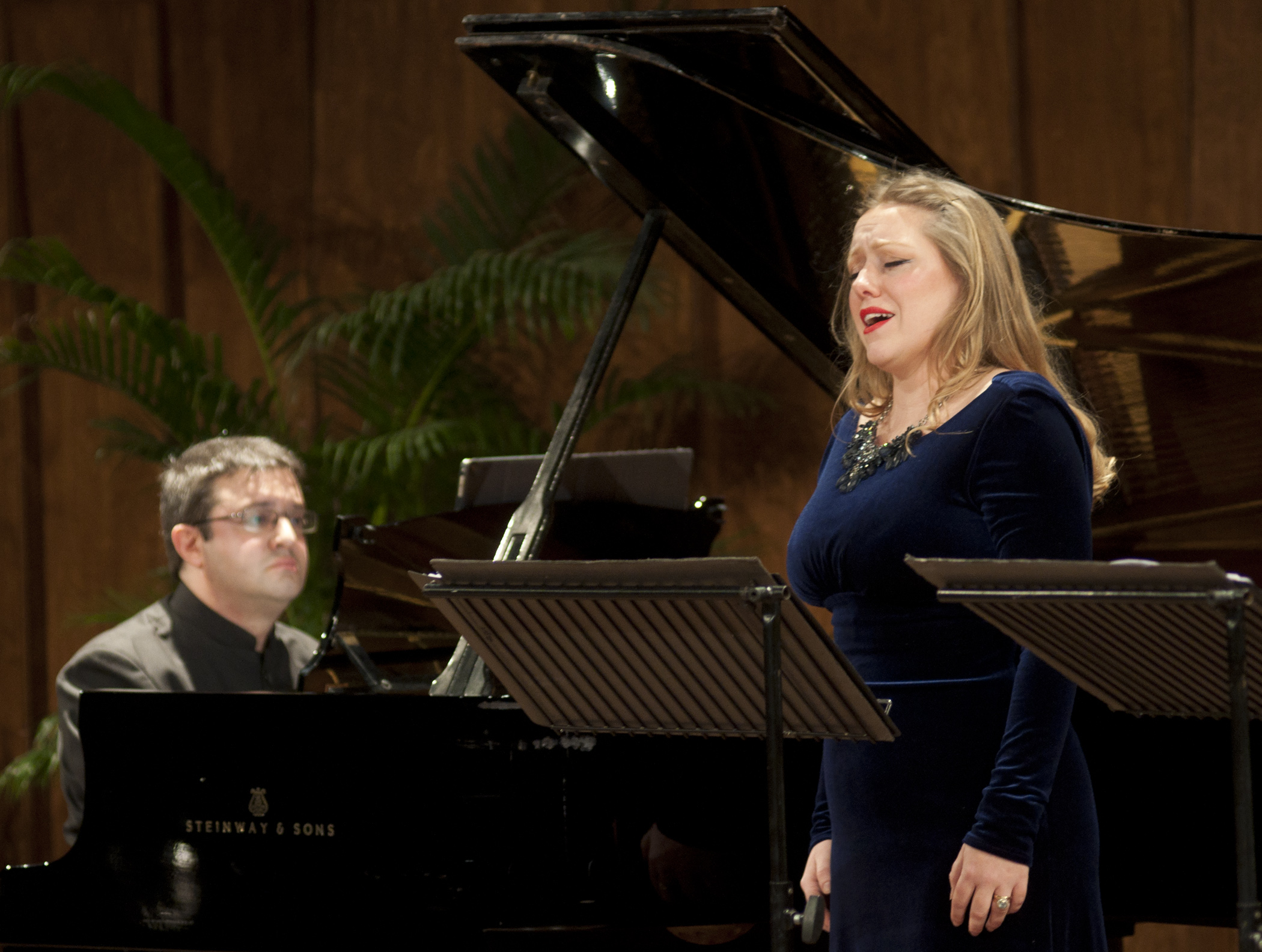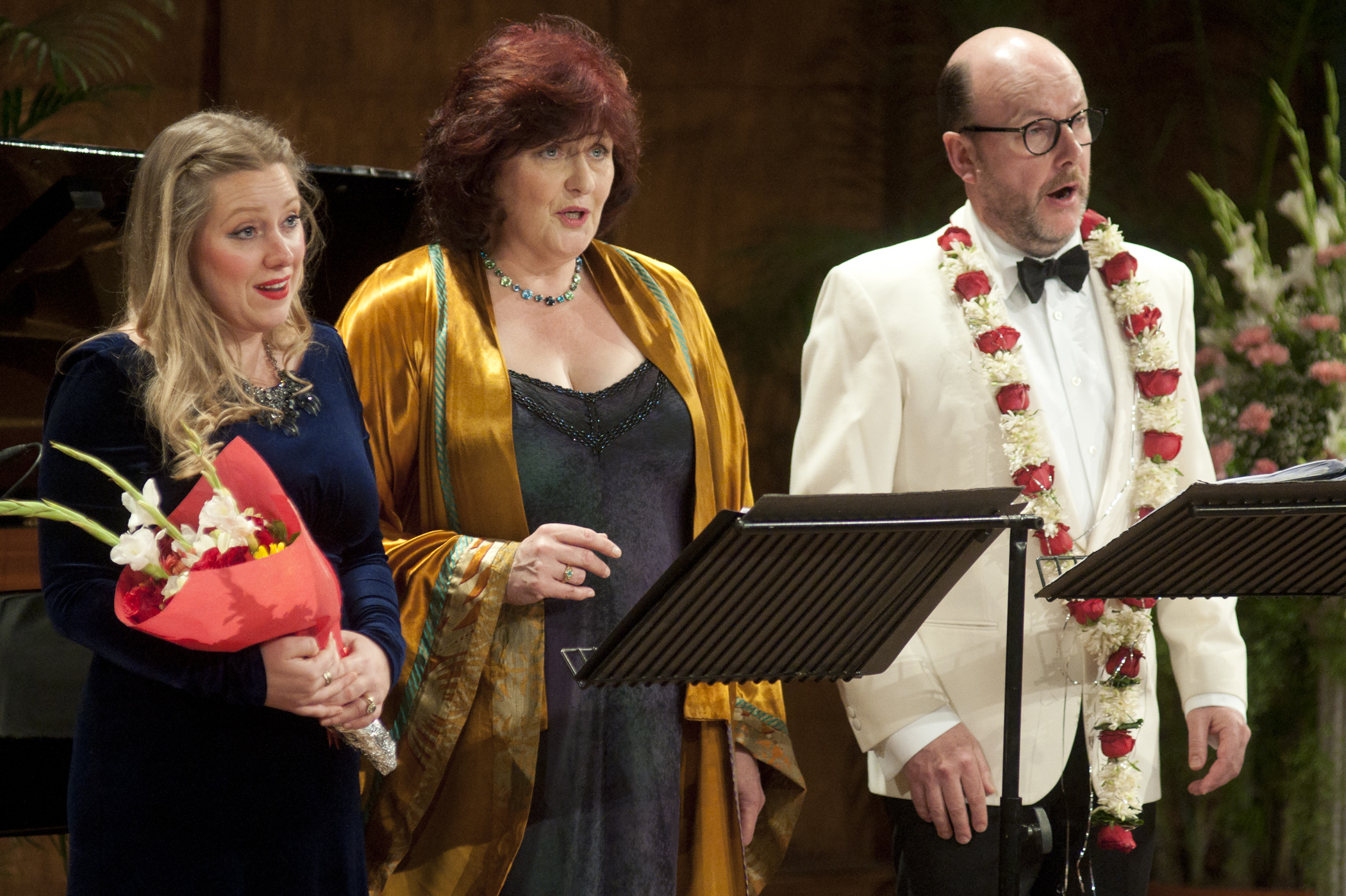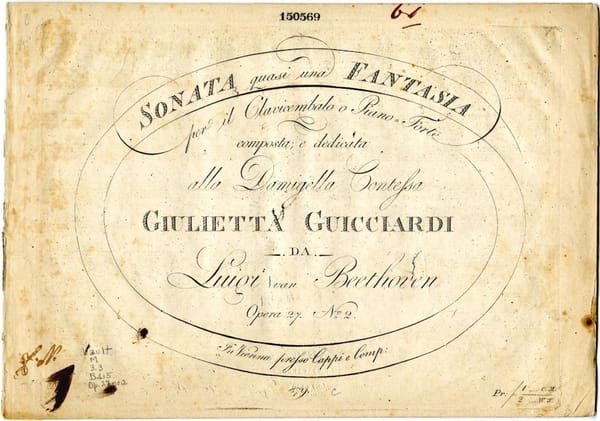A STELLAR VOCAL RECITAL IS A HIGHLIGHT OF SOI SEASON
Three star singers appeared on stage together in a unique and intelligently devised programme. The three singers were English soprano Sophie Bevan, Welsh mezzo soprano Catherine Wyn-Rogers and Welsh bass-baritone Neal Davies. And the raison d’etre? These three singers happened to be in Mumbai to sing in Beethoven’s Ninth Symphony on 9th & 10th February. It was a brilliant imaginative stroke to get them together to sing arias and ensembles from opera and lieder as a one-off programme. All three of them, for the most part lived up to their illustrious reputations. The concert opened with three arias one for each singer from Handel’s only English opera Semele (HWV 58). Semele is a musical drama presented after a manner of oratorio and was first performed in concert form at Covent Garden. The story comes from Ovid’s Metamorphoses and concerns Semele, mother of Bacchus and although initially performed during Lent had an unexpected secular text involving an adulterous relationship.
Jupiter, King of the gods takes a mortal Princess to a secret mountain to be his mistress. When Jupiter’s wife Juno hears of his adultery she is enraged and plots to ensure Semele’s downfall. Juno appears in disguise and persuades Semele to see her lover in his divine form. Reluctantly agreeing Jupiter’s thunderbolts burn and consume Semele. From her ashes, though arrives her unborn child by Jupiter-Bacchus god of wine and ecstasy. In Juno’s well known aria which opened the concert “Hence Iris, hence away” mezzo Catherine Wyn-Rogers sang with great attention to pitch and detail. Choosing a stately tempo she never sounded hasty or rushed conveying a queen firmly desirous of trapping a husband who she suspects using the magical assistance of her helper Iris. Following on was Semele’s aria “O sleep, why dost thou leave me” sung by Sophie Bevan. The singing was quiet and introvert. The aria of Somnus, the god of sleep “Leave me, loathsome light” was sung with a beautiful head voice in the baritone register by Neal Davies.

The next set comprised lieder by Mendelssohn, Brahms and Schumann. The warmth and intimacy of these settings were immediately apparent with the voices nicely coloured. In particular the two lieder by Brahms stood out- The Two Sisters: (Die Schwestern) and the famous Wie Melodien zieht es. Here again Ms. Wyn-Rogers was outstanding as she took command over word and notes in her own naturally experienced yet humble way. Ending the first half with opera arias, duets and a trio by Mozart made for more conventional fare. It was here that their excellent acting skills carried the day. Starting with two duets from the Magic Flute: the captivatingly beautiful Bei Männern for Papageno and Pamina and the recognition duet for Papageno and Papagena. In between was Pamina’s heart breaking lament Ach Ich Fühls sung by Sophie Bevan. Here diction was sacrificed for beauty of tone and the occasional fluffed high note disturbed the line.

In the “Catalogue Aria” from Don Giovanni the words lacked the point and relish of an Italian born singer but the trio Soave sia il vento from Così fan tutte was sung with splendid control of nuance and dynamics.
The second half contained popular excerpts from opera and operetta. Neal Davies impressed with a sonorous bass extension in Wagner’s aria for Wolfram from Tannhäuser. Sophie Bevan’s playful Musetta in the Waltz Song from Puccini’s La bohème made one want more Italian opera from this young singer. Catherine Wyn-Rogers sang a splendid Mon coeur from Saint-Saëns Samson et Dalila reminding me constantly of her great predecessor Marilyn Horne.
The concert ended on a lighter note with excerpts in the English language. The four extracts from Gilbert and Sullivan’s the Mikado included the famous Tit willow. These were characterised with warmth and humour as only a British singer can. Gershwin’s Porgy and Bess was represented by the duet Bess you is my woman now rapturously sung by the soprano and baritone. The concert ended with the bitter-sweet music of Ivor Novello’s Perchance to Dream. By no small means as accompanist Diego Mingolla on piano contributed greatly to the evenings success whether it be in secco recitative or aria, lieder or grand opera he provided just the right background and scope for the singers to revel unfettered in their voices. This was an outstanding evening of vocal music, a fitting coup de theatre to the SOI season.





